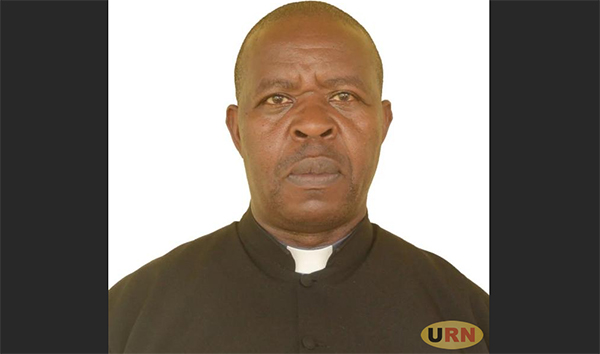
Kabale, Uganda | THE INDEPENDENT | The Kabale Diocesan Peace and Justice Tribunal has come under criticism from sections of the public in the Kigezi region for allegedly promoting sectarianism ahead of the 2026 general elections.
Concerns emerged last week after Rev. Fr. Felix Eugene Odeda, the Muko Parish priest in Rubanda Deanery and a tribunal member, revealed during a Mass that the tribunal, led by its coordinator Rev. Fr. Balthazar Ndyomugabe, had recently resolved that only political leaders subscribing to the Roman Catholic faith should be voted into parliament.
Fr. Odeda cited Henry Ariganyira Musasizi, the State Minister for Finance General Duties, as the preferred candidate for Rubanda East Constituency, Moses Kamuntu Mwongyera for Rubanda West County, Jacqueline Katabazi as Rubanda District Woman MP, and Stephen Ampeire Kasyaba as Rubanda District LC5 Chairman.
He added that the tribunal had assigned parish priests across Kabale Diocese to identify and scrutinize sub-county and parish-level contestants of the same faith for endorsement.
Fr. Odeda’s revelation has sparked criticism, with many arguing that such resolutions promote identity-based politics. Leopold Twesigye, a Kabale District Councilor representing Central Division, and Hope Rukijakare, a resident of Kitumba in Kabale District, warned that such actions could pose a security threat. They called on authorities to investigate the tribunal’s operations.
James Byekwaso and Agness Success from Bubaare Sub-County in Rubanda District argued that tribunal members should be held accountable for endorsing divisive resolutions. Florence Tumwiine and Allen Barenjerera, residents of Muko Sub-County, insisted that it is not the role of religious leaders to dictate electoral choices, emphasizing that people should vote based on leadership capabilities rather than religious affiliation.
Prossy Mbabazi Akampurira, a parliamentary commissioner and incumbent Rubanda District Woman MP, warned that such resolutions could divide families where spouses belong to different faiths. She argued that leaders should focus on eradicating poverty rather than endorsing candidates based on religion.
Joshua Kitakule, Secretary General of the Inter-Religious Council of Uganda, condemned the resolutions, stating that they undermine the council’s mandate by dividing people along religious and political lines. He emphasized that religious leaders should focus on spiritual nourishment and civic education rather than partisan endorsements.
However, Msgr. Dr. John Vianny Sunday, the Kabale Diocesan Vicar General, distanced the diocese from Fr. Odeda’s statements, dismissing them as personal opinions that do not reflect the official position of the diocese. He added that the diocese would engage Fr. Odeda to explain his remarks.
Former Prime Minister Amama Mbabazi, a resident of Kanungu District, also noted an increase in sectarian politics based on religion in the Kigezi region.
The issue of religious politics previously surfaced in November 2024 during the Kisoro District Woman MP by-election. Anonymous letters, allegedly from Catholic supporters, circulated within the district and on social media, urging Catholics to spy on Protestants and bribe voters to prevent Akifeeza Grace Ngabirano, a Protestant, from defeating Rose Kabagyeni, a Catholic.
The controversy prompted President Yoweri Museveni to denounce religious sectarianism, labeling its promoters as enemies of Uganda. He described it as a “toxic” and “rubbish” practice that has historically hindered Uganda’s progress, referencing sectarian conflicts between 1966 and 1986, as well as the 1994 Rwandan genocide and ongoing violence in the Democratic Republic of Congo.
Museveni reiterated the same message during a meeting with the International Community of Banyakigezi in Kanungu District in late December 2024.
****
URN
 The Independent Uganda: You get the Truth we Pay the Price
The Independent Uganda: You get the Truth we Pay the Price



